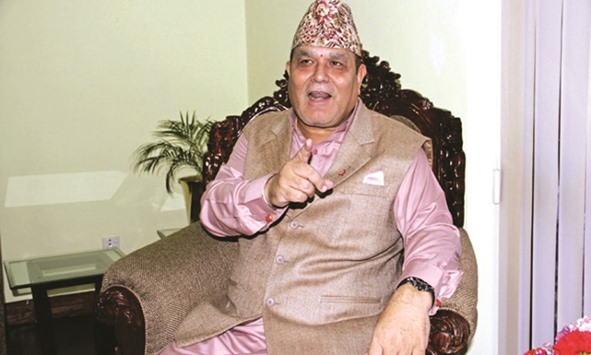Nepal’s Supreme Court ruled yesterday that the powerful head of the anti-corruption commission was not fit to hold the position and should be replaced, in an unprecedented move for the country’s graft mired politics.
Lokman Singh Karki – a perennial figure in Nepal’s politics – has headed the Commission for the Investigation of the Abuse of Authority (CIAA) since 2013, despite myriad graft allegations against him.
“The Supreme Court has concluded that he is not qualified for the position and annulled his appointment,” Biswaraj Poudel, a court spokesman, said.
“The court has also directed the government to appoint a person qualified as per the constitution as the chief of the commission.”
Karki was suspended in October after an impeachment motion was lodged in the parliament, accusing him of abusing his position.
But the impeachment motion then stalled, amid allegations parliament was dragging its feet over concerns that if it backfired some members would find themselves in Karki’s crosshairs on similar charges.
A lawyer filed a case with the Supreme Court arguing that Karki lacked the appropriate moral character for the role and was not qualified to hold the position as head of the anti-graft body.
“The Supreme Court has done what the political parties failed to,” said Akhilesh Upadhayay, editor of the Kathmandu Post daily.
“The commission is supposed to be a watchdog but he (Karki) resorted to excesses and terror tactics targeting those who spoke against him.”
Karki and his cronies are also facing multiple other cases in the Supreme Court, including allegations that they obstructed legal proceedings against him.
Corruption is rife in Nepal, ranked 130th out of 168 countries in watchdog Transparency International’s global corruption perception index.
Political appointments are often handed out – and taken away – on the basis of loyalty, with members of political parties usually hesitant to break rank out of fear it will cost them their position.
Karki’s has been a key player on Nepal’s political stage since before the overthrow of the monarchy in 2008.
He was chief secretary to Nepal’s last king Gyanendra Shah and was closely involved in suppressing the anti-monarchy protests that ultimately led to the abolition of the monarchy.

Lokman Singh Karki, head, Commission for the Investigation of the Abuse of Authority.
